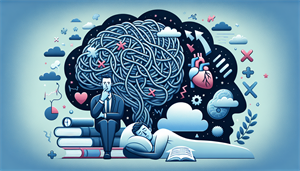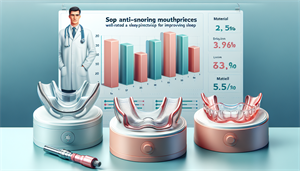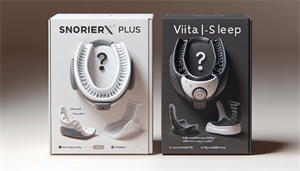
Can Anxiety Cause Sleep Apnea?
Wondering if your anxiety is the culprit behind your sleep apnea? You’re not alone. Many people find themselves in a vicious cycle where anxiety and sleep disturbances seem to fuel each other. But can anxiety cause sleep apnea? In this article, we’ll explore the connection, basing our findings on the latest research and expert opinions. We’ll also provide actionable steps to manage both conditions, so you can rest easier and tame the anxiety that may be affecting your sleep.
Key Takeaways
Sleep apnea and anxiety have a bidirectional relationship where each condition can exacerbate the symptoms of the other, leading to increased stress and poor sleep quality. Various forms of sleep apnea, such as obstructive sleep apnea and central sleep apnea, show a unique correlation to anxiety, with severe cases often experiencing more intense anxiety symptoms.
Treatment for sleep apnea and anxiety includes CPAP therapy, cognitive behavioral therapy, medications, and natural approaches, with the effectiveness of treatment varying among individuals.
Understanding the Relationship Between Anxiety and Sleep Apnea
The entangled relationship between anxiety and sleep apnea is like a sinister dance, where each step feeds the other, leading to an exhausting and stressful daily routine. A mutual relationship exists between anxiety and sleep apnea. Sleep apnea, a disorder characterized by interrupted breathing during sleep, can lead to poor sleep quality, resulting in increased stress and fatigue during the day.
This heightened daytime stress can, in turn, give rise to anxiety disorders. Adding to this, the choking sensations experienced by people with sleep apnea at night are more prevalent in patients with anxiety, indicating a direct correlation between sleep apnea symptoms and an increased incidence of anxiety.
The complexity of this connection deepens when factoring in the severity of sleep apnea. Individuals with obstructive sleep apnea syndrome (OSAS) who also have anxiety symptoms may encounter more frequent choking and distressing symptoms during sleep. This suggests that the severity of sleep apnea may be directly proportional to the intensity of anxiety.
However, there’s a silver lining. Effective treatment of sleep apnea can lead to an improvement in sleep anxiety, reducing sleep deprivation.
The Impact of Anxiety on Sleep
Anxiety harbors its own set of detrimental effects that can disrupt sleep. It can lead to insomnia, increasing the likelihood of sleep-related disorders like sleep apnea and sleep disorders. The psychological status of individuals with obstructive sleep apnea syndrome is often evaluated using tools like the Beck Depression Inventory and the Beck Anxiety Inventory.
These tools help monitor the impact of anxiety on sleep and manage the symptoms effectively. Anxiety, much like a nocturnal thief, robs precious hours of rest, leaving behind fatigue and worry. This not only disrupts your sleep but can also amplify the symptoms of sleep apnea, creating a vicious cycle that can be difficult to break.
How Sleep Apnea Affects Anxiety Levels
Shifting perspectives, we’ll now examine how sleep apnea influences anxiety levels. Sleep apnea, especially obstructive sleep apnea, can lead to increased stress and fatigue during the day due to poor sleep quality at night. This can result in heightened anxiety levels, creating a detrimental cycle where sleep apnea and anxiety mutually exacerbate each other. Breaking this detrimental cycle is key for improved health outcomes.
Therefore, it’s recommended to seek treatment for both sleep apnea and anxiety. Addressing one condition can often lead to improvements in the other, enhancing overall quality of life.


